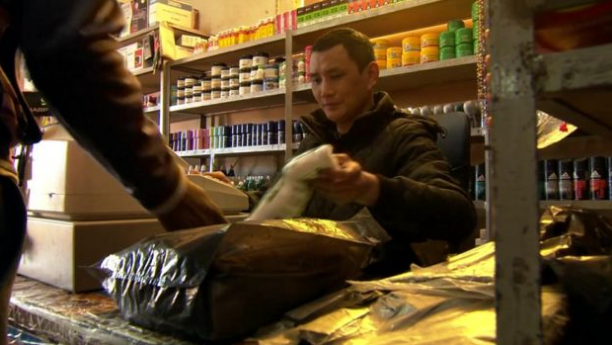Can Chinese migrants integrate in Africa?
In order to change the world, we should start, unless for changing ourselves, and later, with agressive patient and effective effort, we could design little niches towards beneficial circuit businesses for actors who participate to change those niches, and later, if we become more people, and more people, we could change the world, in the line of Soka Gakkai International (SGI)
New from BBC News
She may be the only Chinese student on campus, but Lu Cheng has her feet firmly planted in two camps.
Most of her friends at her business college in Lusaka are from Zambia.
Perched on a bench in the college grounds, she plays the guitar with her friends. At home her instrument of choice is the guzheng, a Chinese harp.
But for an older generation of Chinese migrant, the ease of transitioning between cultures is a lot harder.
It's been seven years since Lu Cheng's parents waved goodbye to China and headed west to find better business opportunities.
They now run a successful chicken feed factory, and although her father Lu Jin says he has made a few Zambian friends, he relies largely on his wife and daughter for company.

Lu Cheng confides that her parents are counting the days until she graduates, when they will have "done their duty" and can return "home" to retire. Compared to her friends' parents, they're far "more traditional", she says.
..
..
Historical ties
It would be naive to gloss over the fact that like other countries, Zambia at times has had a strained relationship with its Chinese partners, especially in the rich copper belt in the north of the country.
There have been demonstrations challenging what Zambians see as the negligent approach to safety. Just a week before I visited, three Chinese nationals from the same family were murdered in the town of Kitwe in the north.
Deep historical ties bind the two countries and their communities together. It was back in the 1970s under President Kenneth Kaunda that the relationship with China began to take shape.

